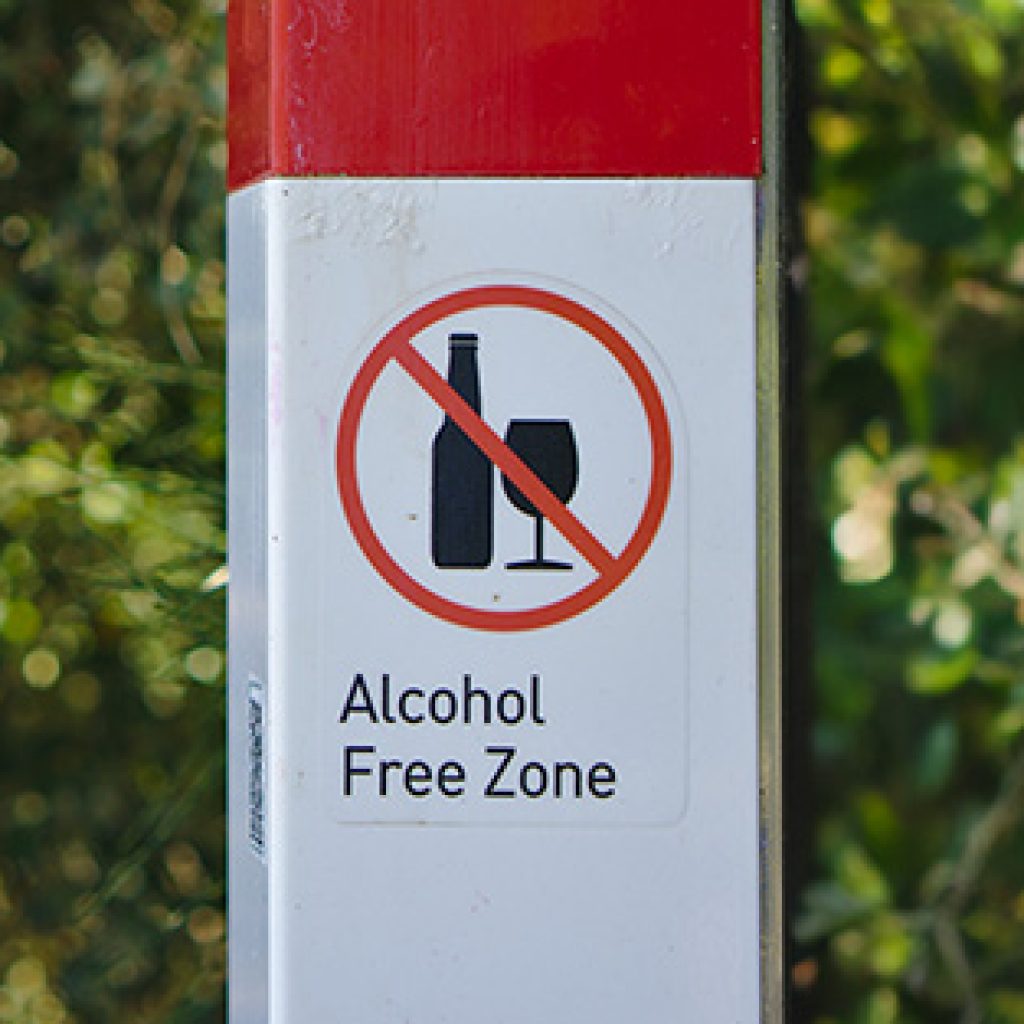Problem Gambling: A Public Health Crisis
The term “public health crisis” has made a comeback in recent years with COVID top of everyone’s mind. My lifetime history of public health crises started with Asbestos in the 1970s, HIV/AIDS in the 1980s, MRSA, Bird flu, and SARS more recently. And as opioid overdoses rose in the United States, the American Medical Association termed the opioid epidemic a “public health crisis.” Now, a 2018 Supreme Court ruling to overturn a long-standing federal law may have just caused another one: Problem gambling.
The Supreme Court ruling to repeal the Professional and Amateur Sports Protection Act (PASPA) effectively legalized the possibility of sports betting in every living room across America. Before the ruling in 2018, only Nevada had legalized sports wagering. Sportsbook operators joined with legislators seeking to increase tax revenue to repeal the law. And in just under four years since the ruling, 32 states and the District of Columbia have current or pending legislation to allow sports betting. That’s 112 million people who can bet from their couch and another 50 million who are just a short drive to the betting window. You no longer need a trip to Las Vegas to bet the Super Bowl or wager on March Madness. A debit card and smartphone will suffice. And there is sufficient evidence linking the accessibility of gambling with problem gambling (Whelan E., Laato S., & Islam N., Billieux, J., 2021).
Depending on the study you read, anywhere between 4-9% of the population in the United States can be classified as a person who experiences problem gambling (Harrison, G., Lau, M., & Ross, D., 2019). Often referred to as the “secret addiction,” most people who are problem gamblers can hide the scope of their devastation from family and friends until it is too late. Problem gambling includes all gambling behavior patterns that compromise, disrupt, or damage personal, family, or vocational pursuits (American Psychiatric Association, 2013). The negative consequences of problem gambling include lying, cheating, stealing, and a negative impact on the person’s psychological well-being (Raybould, J. N., Larkin, M., & Tunney, R., 2021).
Problem gambling is persistent and recurrent, leading to clinically significant distress. For example, people who have a gambling addiction are 5.3 times more likely to commit suicide than the general population (Wardle, H., John, A., et al., 2020). Almost half of the patients who entered treatment reported recent suicidal ideation. And there is a direct relationship between crime and a higher severity level of problem gambling as gamblers are eight times more likely to steal from their employer.
Let’s combine the number of people affected by Asbestos, HIV/AIDS, MRSA, Bird flu, and SARS, and we still come nowhere near the number of people affected by problem gambling. Not to mention the person’s family that becomes collateral damage in the destruction caused by the gambler. Estimates indicate that one person’s gambling problem typically affects up to 8 people (Walker, D., & Sobel, R., 2016). Those people commonly report a breakdown of relationships due to conflict, loss of trust due to dishonesty, concealment of the gambling problem, and a change in roles within the marriage from working together to becoming the “gatekeeper.” By any measure, problem gambling is a public health crisis. The societal cost of problem gambling can be worse than most other public health issues (Latvala, T., Lintonen, T., & Konu, A., 2019). It must be treated with the seriousness of any other public health crisis.
The National Council on Problem Gambling (NCPG) stated it was too early to see the impact of PASPA but noted the signs are “very troubling.” The Federal Communications Commission (FCC) is also concerned about the expansion of gambling, and records show a “steady stream of complaints” related to sports gambling advertisements. Commercials during sports programming to solicit money to gamble are just as common as those for pickup trucks and light beer. Some leagues have taken notice and are limiting the number of sportsbook commercials. The NFL, for example, allows only one advertisement per quarter during football games. However, that can be perceived as hypocrisy, given the NFL’s multi-million-dollar partnerships with major sportsbooks. And by the start of the next football season, at least six NFL stadiums will be equipped with betting kiosks available for in-game wagering.
What we have seen with the end of PASPA is the explosion of sports betting. According to the Chicago Tribune, almost $7 billion was wagered on sports in the first year of Illinois accepting bets. That equates to a $600 bet for each man, woman, and child in the state. It only took New Jersey six months to surpass Nevada’s sports betting handle. New Jersey is on pace to double Nevada’s $8 billion sports betting market. New York opened for business in January 2022 with over $2.4 billion wagered on sports in the first five weeks (McKinley, J., 2022).
Heather Haslem does a fantastic job breaking down problem gambling from a micro and macro level in “The Top 8 Questions Answered About Problem Gambling.” Her article highlights the need for clinicians to regularly screen for symptoms of problem gambling as they would for any other disorder. Problem gamblers generally present with co-occurring symptoms of severe acute depression or anxiety. When assessing these symptoms, clinicians could greatly benefit their clients by exploring if gambling is the root cause of their depression or anxiety.
March is Problem Gambling Awareness Month. As clinicians, let’s look at the profile of who is most at risk for problem gambling. From the sports betting side, NCPG found an increased risk of problem gambling among young people who play daily fantasy sports. NCPG is concerned this demographic is being targeted and groomed as the next generation of sports betters. Teenagers can sign up for free daily fantasy sports accounts, effectively turning over their personal information to the sportsbooks that run fantasy sports.
Another target group is the elderly. Older people become vulnerable to gambling in search of entertainment due to loneliness, social isolation, and boredom. Studies show declining cognition that goes with advancing age can reduce a person’s aversion to risk (Landreat MG, et al., 2019). That, coupled with most seniors being on a fixed income, is a recipe for disaster.
There are many instruments used to assess problem gambling. The South Oaks Gambling Screen (SOGS) has been proven reliable and valid for measuring an individual’s lifetime problem gambling behaviors (Esparza-Reig J., et al., 2021). Developed by Henry Lesieur and Sheila Blume in 1987, SOGS is the most commonly used tool globally because of its reliability to diagnose problem gambling. The Problem Gambling Severity Index (PGSI) is also a reliable tool to determine the severity of an individual’s gambling problem (Browne, M., et al., 2017). Whereas SOGS is reliable for diagnosing, the PGSI is the most used instrument for determining the prevalence and severity of problem gambling. And for brief assessments, clinicians can use the Brief Problem Gambling Screen (BPGS), which the NIH deems the most effective of all short-form instruments.
Whatever tool is used, more awareness of this widespread public health crisis is needed. Bill Krackomberger, a professional sports bettor, recently told Forbes magazine that he feels uneasy about how quickly an addictive pastime like sports betting has gone mainstream. “We’re going to see a fallout in about ten years,” he initially told Will Yakowicz of Forbes Magazine. He later corrected that comment on the nationally syndicated sports betting show “A Numbers Game” with Gill Alexander and said, “it’s going to be much sooner than that.” Mr. Krackomberger is concerned that the mass availability of sports betting will not just be the typical gamblers that get in trouble. Instead, he states, “doctors, lawyers, professionals, Wall Street guys” will be packing the rooms of Gamblers Anonymous meetings around the country. Twelve-step programs like GA have been proven to help. But in a public health crisis, clinicians want to have all the tools available, including more formalized diagnostic instruments and effective treatment options.
Ready to Learn More?
Sports Wagering and Gambling in the Online World: A Recipe for Digital Disaster? LIVE WEBINAR
February 23, 2023 from 10:00 am – 11:30 AM PST
This presentation discusses the recent expansion of legalized sports betting across the US, its confluence with online gambling, and concerns about the potential rise in problematic gambling behaviors that could result. While sports wagering has been legal in Nevada for decades, the national expansion of legalized sports wagering as well as the arrival of major sports franchises in the state has brought about changes in the local industry that include increased opportunities for digital wagering along with a commensurate increase in local interest for engaging in this type of gambling. Research suggests that sports wagering may be more likely to result in problematic play across multiple demographics, particularly among young adult males. The online environment, coupled with the increasing availability and popularity of proposition wagering (in-game betting), has the potential to exacerbate the issue. The legal digital environment also has the potential, however, to more quickly connect individuals who may be transitioning into or suffering from a gambling disorder to help.
Presented by:
William “Ted” Hartwell, MA
Registration required: https://www.casatlearning.org/all/webinars/sports-wagering
Additional resources may be found on the CASAT OnDemand Resources & Downloads page.
Guet Author: Kobie West
Kobie West, MS, LADC, CPGC, is a Nevada state board certified problem gambling counselor for the Problem Gambling Center in Las Vegas. He is a candidate for a doctorate degree in human services focusing on behavioral science and addiction studies. You may use this article in whole or part, without permission.
References:
American Psychiatric Association. (2013). Diagnostic and statistical manual of mental disorders (5th ed).
Browne, M., Hing, N., Rockloff, M., Russell, A. M., Greer, N., Nicoll, F., & Smith, G. (2019). A multivariate evaluation of 25 proximal and distal risk-factors for gambling-related harm. Journal of Clinical Medicine, 8(4), 509. https://doi.org/10.3390/jcm8040509
Esparza-Reig, J., Guillén-Riquelme, A., Martí-Vilar, M., & González-Sala, F. (2021). A Reliability Generalization Meta-analysis of the South Oaks Gambling Screen (SOGS). Psicothema, 33(3), 490–499. https://doi.org/10.7334/psicothema2020.449
Harrison, G. W., Lau, M. I., & Ross, D. (2019). The risk of gambling problems in the general population: A reconsideration. Journal of Gambling Studies, 36(4), 1133–1159. https://doi.org/10.1007/s10899-019-09897-2
Latvala, T., Lintonen, T., & Konu, A. (2019). Public health effects of gambling – debate on a conceptual model. BMC Public Health, 19(1). https://doi.org/10.1186/s12889-019-7391-z
Landreat, M., Cholet, J., Grall Bronnec, M., Lalande, S., & Le Reste, J. Y. (2019). Determinants of gambling disorders in elderly people—a systematic review. Frontiers in Psychiatry, 10. https://doi.org/10.3389/fpsyt.2019.00837
Mckinley, J. (2022, February 22). Online sports betting’s N.Y. debut: $2.4 billion in wagers in 5 weeks. The New York Times. Retrieved March 23, 2022, from https://www.nytimes.com/2022/02/22/nyregion/sports-betting-ny.html
Raybould, J. N., Larkin, M., & Tunney, R. J. (2021). Is there a health inequality in gambling related harms? A systematic review. BMC Public Health, 21(1). https://doi.org/10.1186/s12889-021-10337-3
Wardle, H., John, A., Dymond, S., & McManus, S. (2020). Problem gambling and suicidality in England: Secondary analysis of a representative cross-sectional survey. Public Health, 184, 11–16. https://doi.org/10.1016/j.puhe.2020.03.024
Whelan, E., Laato, S., Islam, A. K., & Billieux, J. (2021). A casino in my pocket: Gratifications associated with obsessive and harmonious passion for mobile gambling. PLOS ONE, 16(2). https://doi.org/10.1371/journal.pone.0246432
Walker, D. M., & Sobel, R. S. (2016). Social and economic impacts of gambling. Current Addiction Reports, 3(3), 293–298. https://doi.org/10.1007/s40429-016-0109-8
Blog Post Tags:
Related Blog Posts
Related Learning Labs
Related Resources
.
- Buscar Tratamiento de Calidad para Trastornos de uso de Sustancia (Finding Quality Treatment for Substance Use Disorders Spanish Version)
- Finding Quality Treatment for Substance Use Disorders
- Focus On Prevention: Strategies and Programs to Prevent Substance Use
- Monthly Variation in Substance Use Initiation Among Full-Time College Students
- The National Survey on Drug Use and Health (NSDUH) Report: Monthly Variation in Substance Use Initiation Among Adolescents









Great Article. I never realized gambling was such a devastating problem. I hope more resources become available for people struggling with gambling addiction.
with any online activity, it’s important for users to be mindful of their security and to manage their time effectively to maintain a healthy balance between gaming and other life activities. Overall, online gaming websites continue to push the boundaries of digital entertainment, constantly introducing new technologies and experiences to captivate gamers worldwide.
What an interesting article! I never thought about how playing fantasy sports as a teenager could eventually lead to problem gambling. With several states passing legislation to permit betting on college sports, problem gambling could become an even bigger issue for young adults.
Great information. With more states legalizing online gambling, content like this has never been more relevant than today.
What a great article. There are so many families affected by problem gambling. Glad to see light being shined on this important issue.
Excellent to the point article and news.. Well appreciated, My sites:
okbet
Despite efforts to create secure environments, these platforms can still be susceptible to cybersecurity threats, including data breaches and phishing scams not like https://www.imb88.id/
Good to read this detail post about the Problem Gambling: A Public Health Crisis and it is a heart idea top use what we have. By using the Wollongong Pressure Cleaning services we can get rid of it.
this big problem of public game is wild